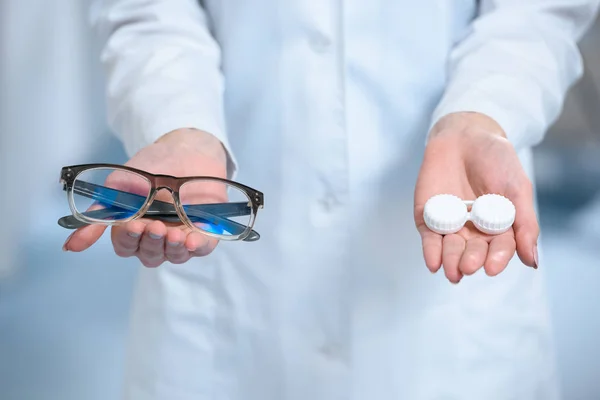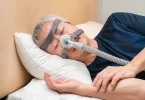It may seem clear that contacts are preferable to glasses, but there are some things that people do not always see upfront about the question. It takes a more detailed analysis to know if glasses or contacts are preferable for each individual, and there are a couple of pros and cons that you need to consider for both before deciding what is suitable for you. First, everyone needs an annual eye exam, and then they can thoroughly weigh the pros and cons of glasses and contacts.
Get Eye Exams First
Before you get glasses or contacts, it is vital to check on your eye health with an eye exam. An annual checkup will help you determine if you need contacts or glasses, and an exam will also help the doctor ensure you do not have an eye disease or another problem.
If anyone is worried about their examination, know that an eye exam is a piece of cake. The doctor will review your eyes’ medical history, and then you will undergo a comprehensive eye exam. Some places even do not do the unpleasant puff of air in the eye test, so there is no excuse to avoid the eye doctor.
Pros and Cons of Glasses
Glasses cost less than contacts, which is one of their most significant benefits. Another piece of the joy of glasses is that they offer bifocal support, which is much more challenging to achieve with contacts, meaning an entire group of people must wear glasses to see everything clearly.
Finally, glasses do not need replacing nearly as often as contacts, so you will save thousands in the long run with glasses as well. The overall theme of glasses is that they will serve you well and save vast sums of money that can go into other things.
The clearest downside to glasses is that they are less stylish than contacts make people feel. People are often concerned that their glasses do not look good on them, something exacerbated by the increased price thinner lenses carry.
Besides that, glasses offer a lesser field of view than contacts because the lens does not allow you to see through the corners of your eyes. It can disconcert and disorient some to not look through the corner of your eyes and see well for those used to contact. Glasses may be cheaper, but they suffer a certain amount of stigma, making contacts preferable to some.
Pros and Cons of Contacts
Everyone that prefers contacts seems to because it is impossible to tell when someone is wearing them without asking. That saves everyone from worrying about looking too nerdy or fearing giant lenses.
Also, people who do athletic activities stand to gain from wearing contacts while working out. After all, the less you worry about your glasses while running or lifting weights, the simpler it is to do your best. Helping people feel more attractive than glasses and keeping glasses from falling off your face makes contacts a high-demand product many prefer.
Contacts are vastly more expensive to wear than glasses. A year’s contacts supply can cost hundreds, and cheap glasses can cost half that price. Contacts also are more troublesome to maintain. There are sometimes issues with people who wear contacts too long, damaging their eyes, and you need to take most contacts out each night before bed, which is an enormous hassle. While contacts may seem to solve everything for your eyes, they have the potential to be more trouble than they are worth to some people.
Conclusion
Most people need a thorough examination of the cases for glasses and contacts to pick between the two correctly. While it might seem obvious to prefer stylish contacts at first, their price means that many people are better suited to wearing glasses in the long run.
Still, before you decide, be sure to get an eye exam to check for your eyes’ health, then fully consider the pros and cons of glasses and contacts before deciding. Choosing between glasses and contacts can be a significant lifestyle decision, so it makes sense to think about the issue thoroughly instead of jumping to conclusions.
AUTHOR’S BIO:
Stephanie Caroline Snyder graduated from The University of Florida in 2018; she majored in Communications with a minor in mass media. Currently, she is an Author and a Freelance Internet Writer, and a Blogger. If you need contacts, Stephanie suggests DrBowersox.








